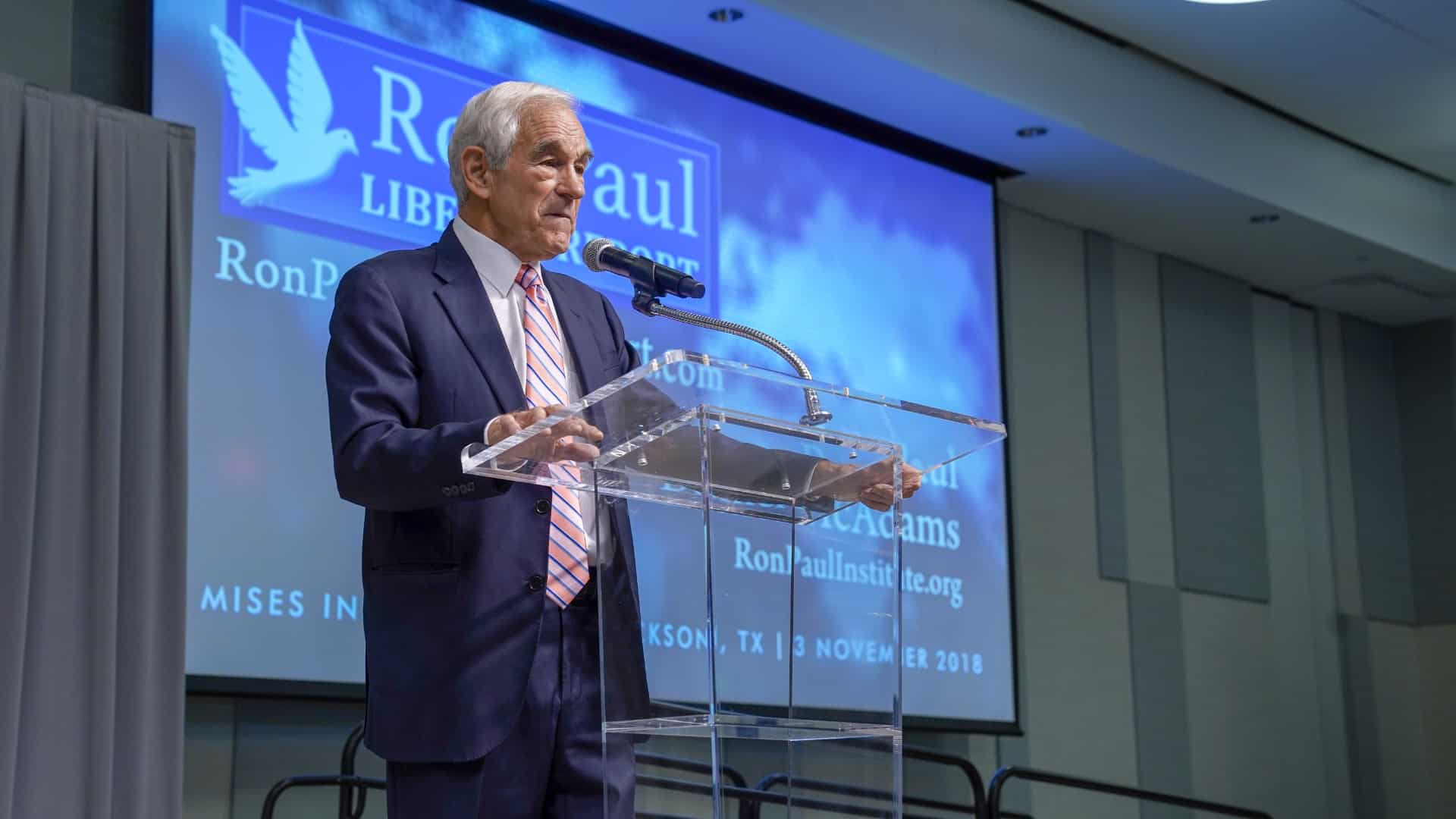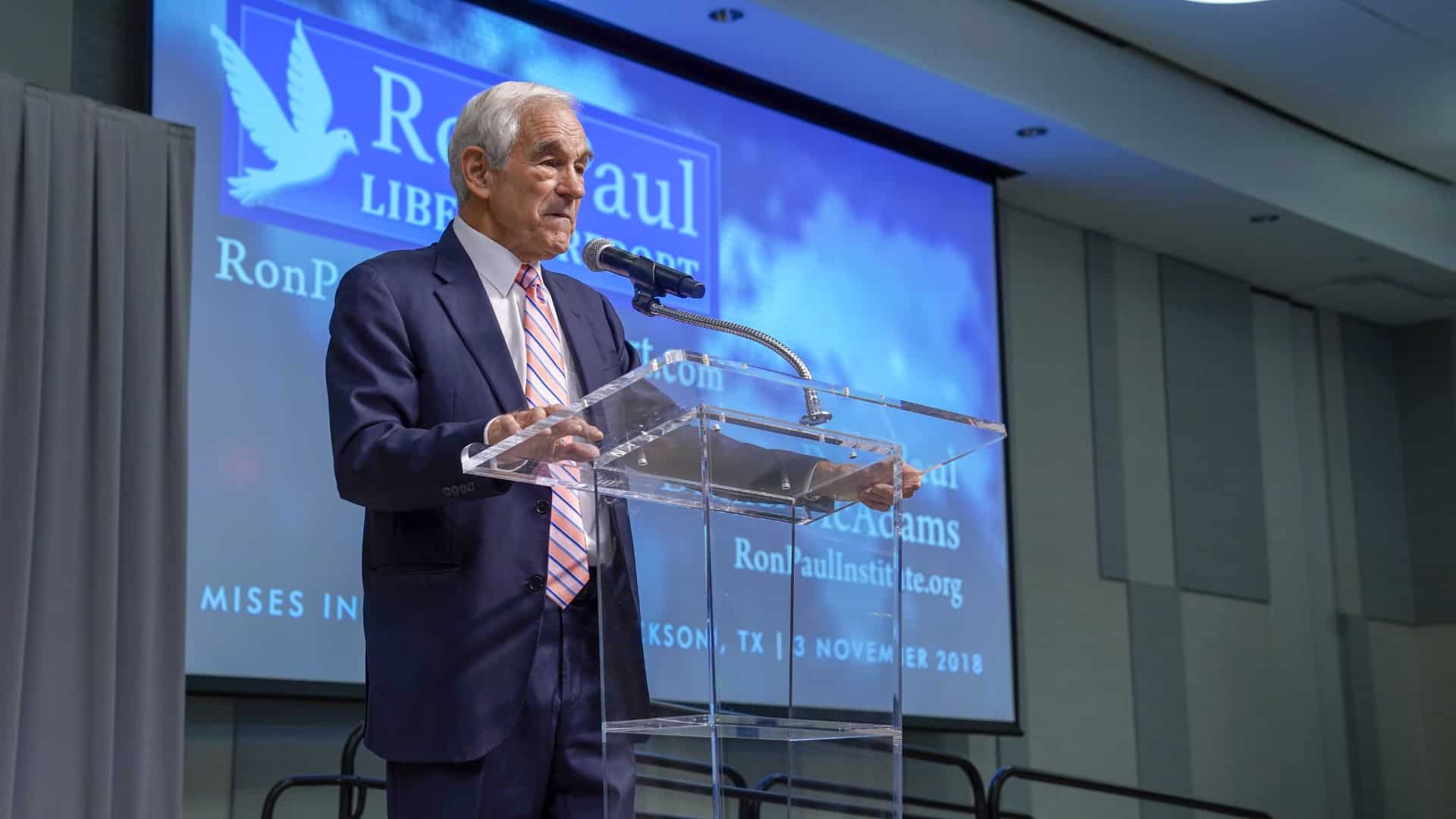We have been discussing the chilling crackdown on free speech that has been building for years in the United States. This effort has accelerated in the aftermath of the Capitol riot including the shutdown sites like Parler. Now former Texas congressman Ron Paul, 85, has been blocked from using his Facebook page for unspecified violations of “community standards.” Paul’s last posting was linked to an article on the “shocking” increase of censorship on social media. Facebook then proceeded to block him under the same undefined “community standards” policy.
Paul, a libertarian leader and former presidential candidate, has been an outspoken critics of foreign wars and an advocate for civil liberties for decades. He wrote:
“With no explanation other than ‘repeatedly going against our community standards,’ @Facebook has blocked me from managing my page. Never have we received notice of violating community standards in the past and nowhere is the offending post identified.”
His son is Sen. Rand Paul (R-Ky.) tweeted, “Facebook now considers advocating for liberty to be sedition. Where will it end?”
Even before the riot, Democrats were calling for blacklists and retaliation against anyone deemed to be “complicit” with the Trump Administration. We have been discussing the rising threats against Trump supporters, lawyers, and officials in recent weeks from Democratic members are calling for blacklists to the Lincoln Project leading a a national effort to harass and abuse any lawyers representing the Republican party or President Trump. Others are calling for banning those “complicit” from college campuses while still others are demanding a “Truth and Reconciliation Commission” to “hold Trump and his enablers accountable for the crimes they have committed.” Daily Beast editor-at-large Rick Wilson has added his own call for “humiliation,” “incarceration” and even ritualistic suicides for Trump supporters in an unhinged, vulgar column.
After the riots, the big tech companies moved to ban and block sites and individuals, including Parler which is the primary alternative to Twitter. Also, a top Forbes editor Randall Lane warned any company that they will be investigated if they hire any former Trump officials.
The riots are being used as a license to rollback on free speech and retaliate against conservatives. In the meantime, the silence of academics and many in the media is deafening. Many of those who have spoken for years about the dark period of McCarthyism and blacklisting are either supporting this censorship or remaining silent in the face of it. Now that conservatives are the targets, speech controls and blacklists appear understandable or even commendable.
The move against Paul, a long champion of free speech, shows how raw and comprehensive this crackdown has become. It shows how the threat to free speech has changed. It is like having a state media without state control. These companies are moving in unison but not necessarily with direct collusion. The riot was immediately taken as a green light to move against a huge variety of sites and individuals. As we have seen in Europe, such censorship becomes an insatiable appetite for greater and greater speech control. Even Germany’s Angela Merkel (who has a long history of anti-free speech actions) has criticized Twitter’s actions as inimical to free speech. Yet, most law professors and media figures in the United States remain silent.
Reprinted with permission from JonathanTurley.org.



